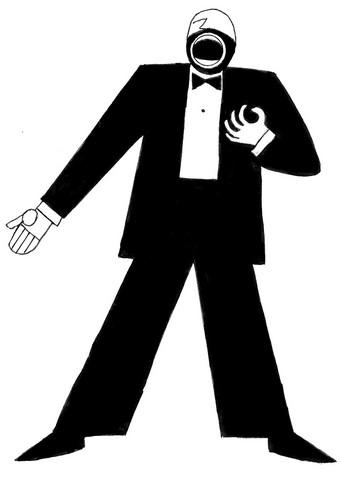Just finished re-reading Anne Midgette’s interesting report on young singers in America. This is something I’ve been thinking about a lot in the past few weeks as I am adjusting to a completely different manner of training singers.
In both of my conservatory experiences in America, the focus was on creating a "complete" performer, with classes on diction, language, theory, history, acting and vocal literature. This was, of course, augmented by weekly voice lessons, which (hopefully) helped the student to build a secure technical foundation on which to lay all of these other interdisciplinary things. It is certainly true that most singers are not ready for the real world of singing after completing their four year course of study, but they are well on their way to understanding the craft, desire and discipline necessary for a career in this crazy business. It is also true that larger voices had a more difficult time, for they simply needed years in order to gain control over the instrument. I suppose "lighter, flexible voices that can perform a wide range of material accurately" were encouraged, but the majority of 21-year olds do not have dramatic or spinto voices...yet. What Anne Midgette fails to address is that some of these young, light lyric voices might naturally begin to gravitate towards heavier repertoire as the voice ages. I do think you are born a Wagnerian, but you can grow into Puccini and Verdi. Still, it is necessary to foster a good relationship with a solid technician in order to build a voice that can have a long life. Even with all of the intricacies of a conservatory education, it is still difficult to get the amount of attention a young voice needs. Many conservatories run the risk of being singer "factories", where voices are built and rudiments are learned without much care given to the singer developing into an intelligent, thoughtful artist. I think the best we can hope for out of a conservatory education is a healthy start. Let experience, maturity, further teaching and the unique personality of the singer do the rest.
Now I am witnessing a completely different method towards creating musicians (notice I didn’t say building singers). Unfortunately my experience with British universities is somewhat limited since I only have experience at one. Here at York, students are encouraged very early on to create an academic portfolio that suits their individual interests. Students get an allowance for a private teacher, which they may spend as they see fit, being careful not to run out of money too soon. Instead of classes which dabble in everything, students take part in special subject seminars, working on a specific project for a semester. The project could be in Baroque Choral Music, Lieder, Contemporary Music, Jazz, etc. At the conclusion of the seminars, a large written assignment is due, along with a vocal performance of some sort. (This is what I’ve been able to glean about the undergraduate curriculum from the course catalog and talking with other students). The graduate program is similarly run, but with the special subject seminars changing every four weeks. (I should also note that York is on a trimester system. In addition, British universities are only three years instead of four). The student’s written work and performance assessments are chosen by the student and may encompass any topic on which the student wishes to do independent research. So what emerges out of all this are students who have worked closely with very knowledgeable scholars on areas of music that they are interested in, but who have not worked as much on becoming singers. I imagine an aspiring opera singer could find life a bit lonely at York, as there are many singers who focus on early music and choral music. I am surprised when hearing the undergraduate singers here, both because of their innate sense of style and musicality and for the limited technical resources of some. It is also surprising to note some of the knowledge and deficiencies in vocal literature that this specialisation creates. In America we receive a broad survey of different vocal music, but may not spend a lot of time on one period of music until later on. These singers here may handily perform loads of wonderful obscure early music that most American singers would be clueless with, but may also have never heard a Strauss or Wolf song. (I should qualify all of this by mentioning that York is a university and not a conservatory. I expect that life at the Guildhall School or Royal College of Music may be more similar to my experiences in America).
In the end, I think that it is important to survey everything before you specialise, but at a certain point focussing on one’s individual interests helps a musician to grow. This makes a program like York perfect for postgraduate students like me who are ready to be challenged intellectually and pursue specific interests. For example, I am examining composers and performers of the "post-Sondheim" generation this term. I wonder where I possibly could have done that, while still learning about historical performance practice in lieder and the intricacies of ensemble singing.


1 Comments:
Hi SJZ,
As a result of reading your blog "this post", I think you will discover my site on Highest Wages In All States will be a great help.
To illustrate our diverse range of wages information, here are some of the latest search terms that located our site ...
Multi Media Artists Wages
Animators Wages
Music Directors Wages
Composers Wages
Musicians Wages
Singers Wages
Photographers Wages
Umpires & Referees Wages
Sports Officials Wages
Producers & Directors Wages.
We have over 200 "have to read" career and wages articles in addition to many other interesting subjects in our Wages For All Occupations site.
Best Regards
Emily
Post a Comment
<< Home